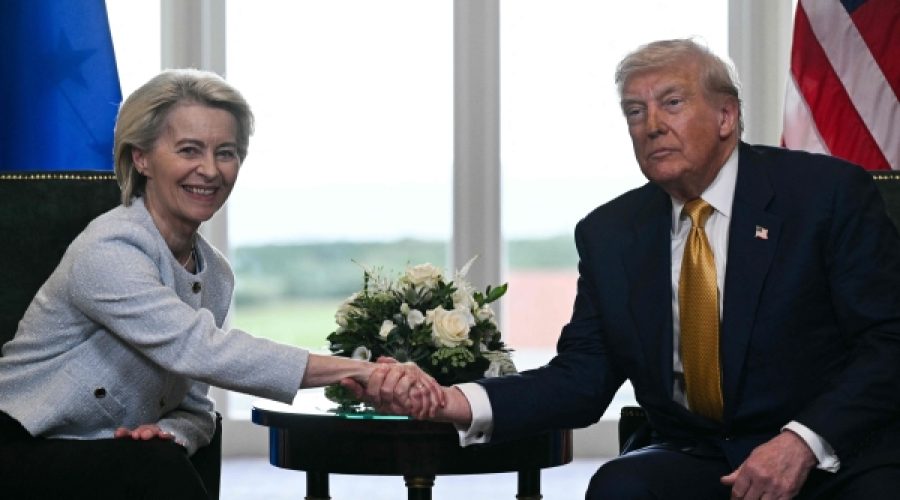Trump’s Tariffs Updated: Key Changes and Their Impact on Businesses in Oman
Washington – The Trump administration introduced a series of new tariffs on Thursday that will take effect in one week, impacting most U.S. trading partners. These import levies can be as high as 41 percent for Syria, with a notable increase for Canadian imports, rising from 25 percent to 35 percent.
Canada
President Trump announced the increased tariffs on certain Canadian goods during his address on Thursday. This decision follows Prime Minister Mark Carney’s intention to recognize a Palestinian state at the UN General Assembly in September, which Trump warned would have trade repercussions. Unlike other new tariffs that have a delayed implementation, this increase will start on Friday. Products covered under the 2020 United States-Mexico-Canada Agreement will be exempt from these tariffs. Trump cited Canada’s failure to collaborate in curbing the influx of fentanyl as a reason for the increased levies. In response, Carney expressed disappointment, highlighting Canada’s efforts to combat fentanyl and enhance border security.
Mexico
The imposition of higher tariffs on Mexican imports has been delayed by 90 days, a decision reached after discussions between Trump and Mexican President Claudia Sheinbaum. Initially, Trump had threatened to raise tariffs from 25 percent to 30 percent, effective August 1, due to concerns over illicit fentanyl.
South Korea
In a late-hour deal, Washington and Seoul negotiated to avert a 25 percent tariff on South Korean goods, lowering it to 15 percent. This agreement also includes South Korea’s commitment to invest $350 billion and purchase $100 billion in liquefied natural gas and other energy resources. Tariffs on automobiles will remain at 15 percent.
Brazil
Trump’s tariffs on Brazil include a 50 percent duty on Brazilian goods, which has been postponed from August 1 to August 6. Certain products, such as orange juice and civil aircraft, will be exempt. These tariffs represent a political move against Brazil, particularly in response to what Trump describes as a "witch hunt" against former President Jair Bolsonaro.
India
Starting August 1, Indian goods will face a 25 percent U.S. tariff, slightly lower than initially threatened. Trump also indicated there would be an unspecified penalty regarding New Delhi’s purchases of Russian weapons and energy, expressing disregard for India’s dealings with Russia.
European Union and Switzerland
EU exports to the U.S. will incur a 15 percent tariff on most items following an agreement that avoided a higher 30 percent rate. Some agricultural products will be exempt, although specifics were not disclosed. French President Emmanuel Macron has committed to maintaining a firm stance in further negotiations. Additionally, a 39 percent tariff on Swiss goods has been proposed, higher than the earlier 31 percent threat. The Swiss government plans to negotiate with the U.S. to protect its pharmaceutical industry.
China
China is notably excluded from the current tariff changes, facing a deadline of August 12 for potential increases. The U.S. and China had once engaged in reciprocal tariffs that escalated significantly, but both countries are currently working to extend a temporary truce. China warned on Friday that U.S. protectionism "harms the interests of all parties," reinforcing its stance against tariffs and asserting that there are no winners in a trade war.
Special Analysis by Omanet | Navigate Oman’s Market
The recent tariff hikes by the Trump administration signal potential disruptions in global trade, presenting both challenges and opportunities for businesses in Oman. Companies reliant on the U.S. market may face increased costs, while Oman could capitalize on shifts in supply chains, particularly by positioning itself as an alternative source for affected imports. Strategic investors should closely monitor these developments, identifying sectors that may benefit from trade diversions while being mindful of the heightened geopolitical risks involved.



